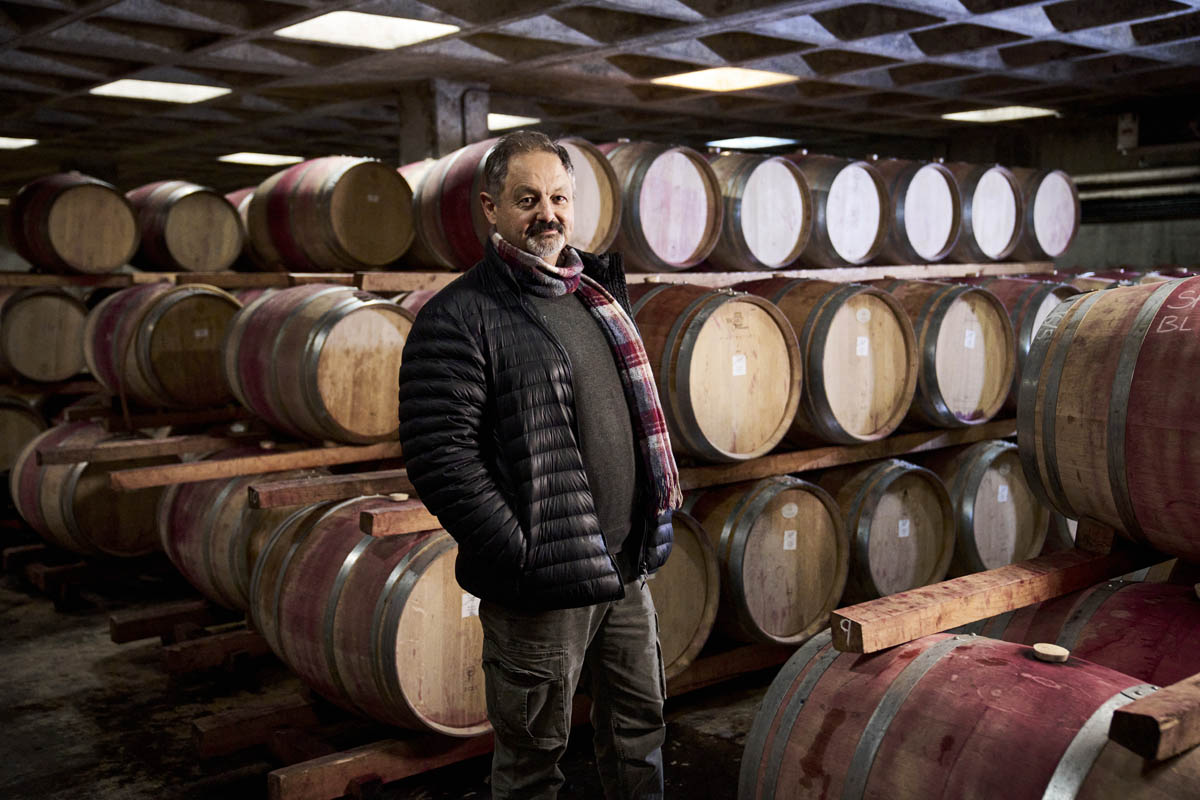South African Wine Legend: Carl Schultz
“2023 is my 35th harvest,” says Carl Schultz, cellarmaster of Hartenberg Estate in Stellenbosch. “And, one of the most fascinating. If ever there was a vintage where global warming started to flex its muscles at us, this is it,” he says referring to the unseasonal rains that washed across the winelands late during the season. With over three decades under his belt, Schultz offers that while the rains were certainly unfortunate, the moderate, cool growing season was an asset, especially if you understood your vineyards.
And understand his site he does. The majority of his 35-year tenure has been spent immersed in Hartenberg’s 170-hectares. He joined the team at the dawn of democracy in 1994. “Site is going to play a dramatic role in this vintage,” Schultz elaborates.
“Over the years you notice all the little differences on the farm; and you can use this intimate knowledge to your advantage. Véraison was also very quick and even. We have deep colours on the reds, and the vines haven’t been stressed… I would go on record and say this is a quality vintage in-line with the beautiful 2017 harvest.”
Schultz quickly climbed the ranks at Hartenberg; he was named as a director of the estate in 1996. During this time he joined the illustrious Cape Winemakers Guild, where for a period of time he served as chairman. During which a simple but powerful move changed the course of the organisation. He suggested dropping the ‘Independent’ from the Cape Independent Winemakers Guild. This had the effect of allowing winemakers of larger organisations to also become members. Then, in 2013 he made history again by appointing Tammy Jeftha – a Guild protégé – as winemaker at Hartenberg. Schultz was the first Guild member to permanently employ a student from the programme.
Being the progeny of teachers it’s no surprise that Schultz is drawn to mentorship. He says his parents instilled in him ‘solid core values such as, integrity, honesty, respect and hard work’. Born in Montagu, he was schooled in Cape Town as well as Somerset West. His love for the natural world was sparked by going on field trips with his father. “My father trained as a biologist and we spent a lot of time out in nature looking for fossils, identifying plants or just simply soaking up remote, peaceful environs.”
It was this love of the outdoors that saw him attending Elsenburg Agricultural College to study deciduous fruit farming. “As a student there I discovered the multiple wonders of wine,” he says laughing.
Swapping apples for wine grapes Schultz graduated as the dux student in 1998 from Elsenburg. The rest is history.
“I have always had a big interest and love for nature,” says Schultz on his approach to viti and vini. Long before the term ‘regenerative agriculture’ became a buzzword Schultz has channelled this affinity into Hartenberg.
“Our practice of regenerative agriculture stretches back decades, even if we weren’t always calling it that,” remarks Schultz. “It runs through everything we do, from the vineyard and cellar to tasting room, restaurant and beyond.
“Regenerative agriculture is about actively healing our environment through our farming practices. A key factor in achieving this is the restoration of soil health and fertility through increasing organic matter and closing the carbon cycle by farming in harmony with nature.”
At his side is viticulturist Wilhelm Joubert; who himself has been at Hartenberg for 20 years. Schultz pushes the point that Joubert has been absolutely pivotal in all of the estate’s conservation efforts.
Together they have achieved incredible results.
“I am proud of how we have re-modelled and guided Hartenberg to sustainability and increased conservation over three decades, including 100 per cent water-use recycling, pioneering biological control of leaf roll virus [since 2000 they have been pesticide-free in the vineyards] and the greening/regeneration of the estate’s fauna and flora.”
The latter was achieved by a decade’s long project of removing alien vegetation from Hartenberg’s wetland area, a spectacular success: where 130 bird species now flourish as well as buck, caracal, Cape fox and black-backed jackals.
They have also replaced rodent bait stations with twelve breeding pairs of Barn Owls, as well as relying on the resident free-range Eagle Owls to do this job. Soil health is kept active with the annual changing of multiple cover crops to ensure microbe diversity. Added to this is the controlled grazing of cattle in the vineyards, which has proved imperative for carbon sequestration.
“It’s incredible the positive effect regenerative agriculture has on the resultant wines,” enthuses Schultz. The team is actively carrying out tests to assess this and so far, the results are more than convincing, from pitch-perfect analyses to the taste itself.
And while the estate’s wines rightly continue to rake in awards and acclaim, Schultz is aware of his role as custodian of the farm he knows so well. “Climate change is the slow poison of our time. Regenerative agriculture is truly the only antidote.”

- Blog by Malu Lambert